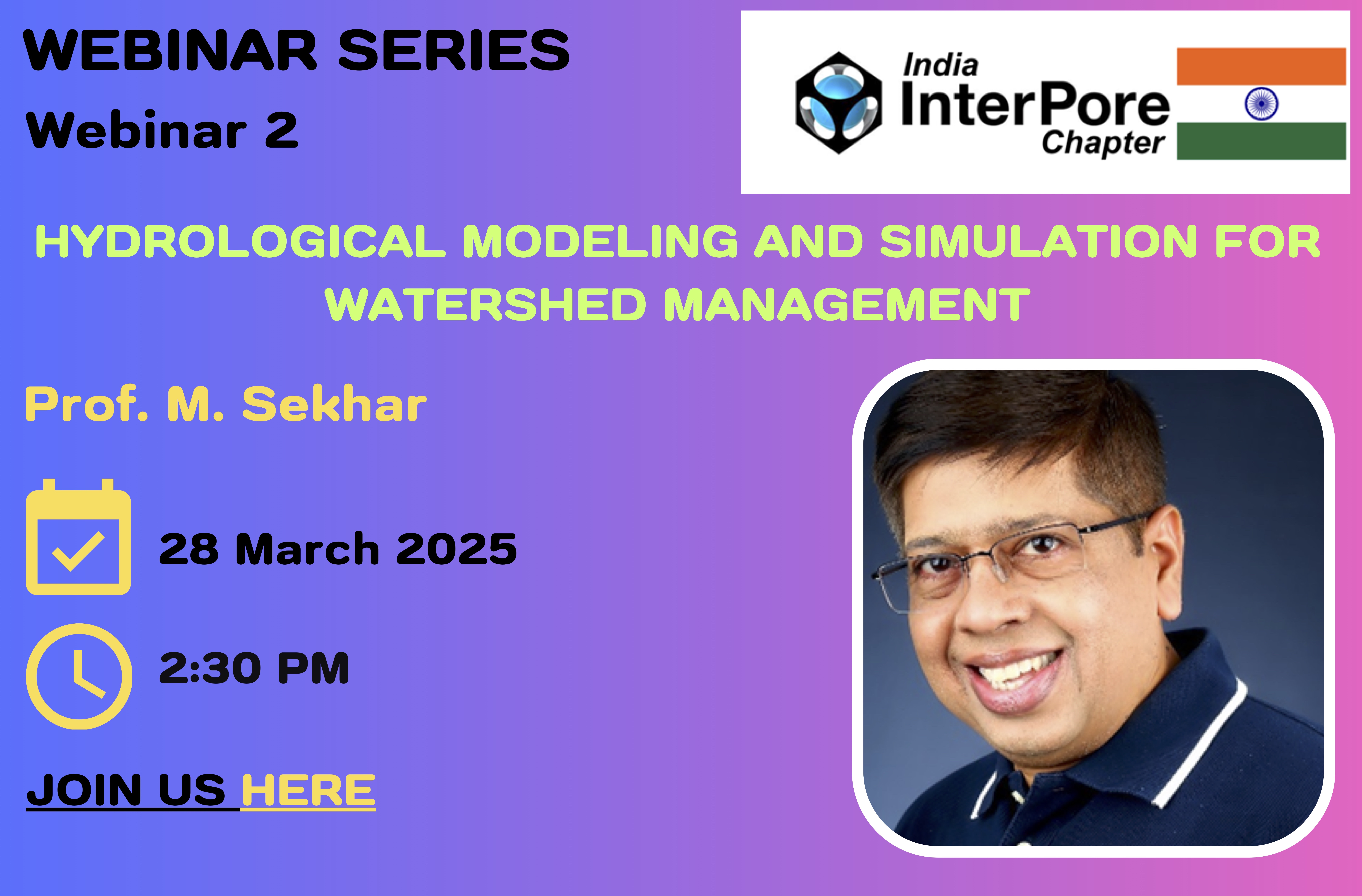Webinar Series: Hydrological Modeling And Simulation for Watershed Management
Hydrological models have been developed in literature for various types of applications such as water resources in river basins, agricultural water management and environmental and ecological aspects in landscapes. The key contributing processes in hydrological system will depend on the use case(application), spatio-temporal scale, geographical/ climatic context and hence a specific model would focus on the key physics of the hydrological process and its suitable parametrization. Several studies have been attempted using simpler lumped to complex fully distributed models. However, most of these studies have been at large river basin scales with a focus on water resources development and management. Interventions and management in small watersheds have an alternate focus on conservation of water in all forms, control of soil erosion, sustainable agriculture with adaptation to global changes, improved ecosystem services and ecological security. These requirements pose the needs to have inter-disciplinary or pluri-disciplinary models. Further, in recent years opportunities of deploying a range of cost-effective and smart sensors for multiple hydrological hydrological variables along with remote sensed data products have helped to improve the hydrological modeling tools for small watersheds. In this presentation, some of these aspects will be highlighted. In this talk the lessons learnt from the investigations in the Kabini Critical Zone Observatory will be discussed.
About the Speaker: Prof. Sekhar Muddu is a professor in the area of hydrology & water resources in the Department of Civil Engineering at the Indian Institute of Science Bangalore. He is also an honorary adjunct professor at Nebraska Water Centre of the University of Nebraska Lincoln, USA and is the Coordinator of the Indo-French Cell for WaterSciences at IISc. His chief research interests are on analysis & process understanding of ground water systems, agrohydrology, and satellite hydrology. He is collaborating with interdisciplinary teams on integrated hydrological and geochemical catchment experiments and is the lead member of the Kabini critical zone observatory. In recent years, he is involved with projects of watershed development departments for developing innovative decision support tools and advisories for sustainable water solutions and improved agricultural resilience inmicro-watersheds.

